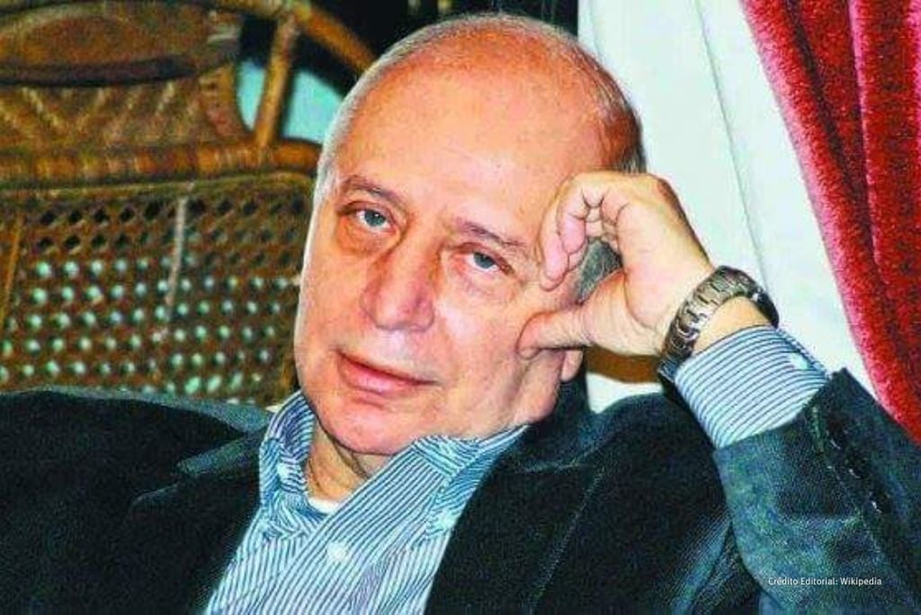We support our Publishers and Content Creators. You can view this story on their website by CLICKING HERE.

Not long ago, we lost Don Pablo Eduardo Victoria Wilches, the brilliant Spanish-American who, among other talents, was a philosopher, economist, politician, and historian. He embodied the great archetypes of our past that, from the late 15th century to the early 19th century, changed the world forever.
Perhaps it was for him and because of him that the mottos of the Spanish Monarchy were made, namely, «Plus Ultra» («far beyond») and «Utraque Unum» («both are one»), sealing the mythical Pillars of Hercules as a continuous evocation of antiquity and the possibilities of our civilization.
Exiled from his beloved Colombia in those harsh years, he found a new home in Spain, blending both worlds and knowing how to open doors to our history that brought a breath of fresh air and effective tools to better know and understand ourselves after two hundred years of solitude.
A «new home» relatively speaking, because if anyone demonstrated to us how much we have in common, that Spain never left America and that America was always part of Spain, it was him, through his life and work.
There is a clear before and after with Don Pablo, as he was a great driving force for the recovery of our history, a universal history that, by virtue of being shared, is worth knowing and reclaiming.
Thanks to Don Pablo, the figure of Blas de Lezo, the heroic admiral who thwarted the attempted invasion of Cartagena de Indias, humiliating England and its colonies in the 18th century, was recognized and acknowledged as it should be.
Speaking of that dynamic and brilliant 18th century for the Catholic Monarchy, Don Pablo was also instrumental in the recognition of Bernardo de Gálvez and the Spanish contribution to the birth of the United States.
Of course, Pablo Victoria did not shy away from confronting the black legend of the conquest, nor from challenging the rosy legend of the secessions, speaking bluntly and boldly, with arguments and documents, addressing both the indigenists and the idolaters of Bolívar and his companions.
However, if anything becomes clear over the years, it is that the Black Legend is fundamentally our problem. As much as foreigners of all stripes may be bent on denigrating us, the dangerous part is that Spaniards have embraced it as dogma, as Don Pablo warned us; at the same time, he also cautioned that the ones most harmed by indigenism would not be the Spaniards, but the Creoles. Unfortunately, we remain trapped in these vicious cycles.
Nevertheless, Don Pablo’s extensive and fascinating body of work has been crafted with the substance and style of elegant and poetic prose. If Marcelino Menéndez y Pelayo and Miguel de Unamuno referred to Joaquim Pedro de Oliveira Martins as «the most artistic historian of the Peninsula,» I hope that Pablo Victoria will be considered—among others—as the most artistic historian of our America. After all, our author was the heir to Colombia’s literary prowess, highly regarded among names like Jorge Isaacs, Julio Arboleda Pombo, José Eustasio Rivera, Álvaro Mutis, and Gabriel García Márquez, among others, who have added so much brilliance to our shared language.
Our saying goes, «to be well-born is to be grateful.» Thus, from Alaska to Tierra del Fuego, as well as in European Spain, we owe much gratitude to the books and lectures of Pablo Victoria. His teachings have already entered immortality.
May his memory guide us toward the future, because although we certainly need it, his testament of a good fight always leaves room for hope.
Joana Campos es abogada y editora con más de 10 años de experiencia en la gestión de proyectos de desarrollo internacional, enfocada en la sostenibilidad y el impacto social positivo. Actualmente dirige JC Editorial, donde ha coordinado la edición y distribución de libros de reconocidos autores internacionales y la logística de numerosas giras nacionales. Además, se desempeña como Administradora General en Medicina Integradora, gestionando la clínica y generando proyectos en diversas áreas. Anteriormente, trabajó como abogada corporativa, especializándose en derecho penal y corporativo. Joana es licenciada en Derecho por la Universidad de Guadalajara.
Joana Campos is a lawyer and editor with over 10 years of experience in managing international development projects, focusing on sustainability and positive social impact. She currently leads JC Editorial, where she has coordinated the editing and distribution of books by renowned international authors and managed the logistics of numerous national tours. Additionally, she serves as the General Administrator at Medicina Integradora, overseeing the clinic and generating projects in various areas. Previously, she worked as a corporate lawyer, specializing in criminal and corporate law. Joana holds a law degree from the University of Guadalajara.

 Conservative
Conservative  Search
Search Trending
Trending Current News
Current News 


